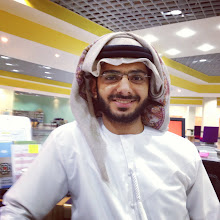 Greetings & happy Eid
Greetings & happy EidThis is some information about the Eid al Aldha (muslim celebration)
Have a nice holiday :)
What is Eid al-Adha:
At the end of the Hajj (annual pilgrimage to Mecca), Muslims throughout the world celebrate the holiday of Eid al-Adha (Festival of Sacrifice). In 2008, Eid al-Adha will begin on approximately December 8th, and will last for three days.
What does Eid al-Adha commemorate?
During the Hajj, Muslims remember and commemorate the trials and triumphs of the Prophet Abraham. The Qur'an describes Abraham as follows:
"Surely Abraham was an example, obedient to Allah, by nature upright, and he was not of the polytheists. He was grateful for Our bounties. We chose him and guided him unto a right path. We gave him good in this world, and in the next he will most surely be among the righteous." (Qur'an 16:120-121)
One of Abraham's main trials was to face the command of Allah to kill his only son. Upon hearing this command, he prepared to submit to Allah's will. When he was all prepared to do it, Allah revealed to him that his "sacrifice" had already been fulfilled. He had shown that his love for his Lord superceded all others, that he would lay down his own life or the lives of those dear to him in order to submit to God.
Why do Muslims sacrifice an animal on this day?
During the celebration of Eid al-Adha, Muslims commemorate and remember Abraham's trials, by themselves slaughtering an animal such as a sheep, camel, or goat. This action is very often misunderstood by those outside the faith.
Allah has given us power over animals and allowed us to eat meat, but only if we pronounce His name at the solemn act of taking life. Muslims slaughter animals in the same way throughout the year. By saying the name of Allah at the time of slaughter, we are reminded that life is sacred.
The meat from the sacrifice of Eid al-Adha is mostly given away to others. One-third is eaten by immediate family and relatives, one-third is given away to friends, and one-third is donated to the poor. The act symbolizes our willingness to give up things that are of benefit to us or close to our hearts, in order to follow Allah's commands. It also symbolizes our willingness to give up some of our own bounties, in order to strengthen ties of friendship and help those who are in need. We recognize that all blessings come from Allah, and we should open our hearts and share with others.
It is very important to understand that the sacrifice itself, as practiced by Muslims, has nothing to do with atoning for our sins or using the blood to wash ourselves from sin. This is a misunderstanding by those of previous generations: "It is not their meat nor their blood that reaches Allah; it is your piety that reaches Him." (Qur'an 22:37)
The symbolism is in the attitude - a willingness to make sacrifices in our lives in order to stay on the Straight Path. Each of us makes small sacrifices, giving up things that are fun or important to us. A true Muslim, one who submits his or herself completely to the Lord, is willing to follow Allah's commands completely and obediently. It is this strength of heart, purity in faith, and willing obedience that our Lord desires from us.
When:
The sunnah of the Prophet (pbuh) was to determine the day of Eid ul Adha as the 10th of Dhul Hijjah. This was determined by the Prophet (pbuh) sighting of the crescent wherever he was on the 29th or 30th of Dhul Qa'dah. If, as we are told by those postulating the 'Day after Arafat' position, that Eid ul Adha is dependent on the Hajj date, then why did the Prophet (pbuh) make no effort to ascertain the Hajj dates in Mecca for his Eid celebration in Medina? After the conquest of Mecca in the seventh year of the Hijra [the year of immigration from Mecca to Medina which marks the beginning of the Islamic calendar] there would have been no problem in finding out when the Hajj was going to be since there would be ten days for a rider to travel to surrounding areas with the glorious news. The Messenger of Allah (pbuh) made no attempt to know, or to inform the Muslims in the areas around Medina about when the Hajj was in Mecca. Every Muslim community prayed according to its own sighting of the crescent of Dhul Hijjah. Accordingly, all the scholars of Islam are unanimous that Eid ul Adha is on the 10th of Dhul Hijjah which is determined by the sighting in each locality, and NOT ON THE 10th OF DHUL HIJJAH IN MECCA. It is a bida to try to impose a Vatican-like dogma on the Muslim ummah, although the propagators would tell you that they are simply following a 'universal horizon.' Don't be fooled. In Ramadan of 1999 it was claimed that the moon was seen in Yemen and Libya, and the Muslims of those countries began fasting on December 8, 1999. Those who claim to accept any sighting anywhere in the world conveniently ignored those Muslims, opting for the 'universal sighting' of their choice. The Companions of the Prophet (pbuh) opposed every attempt to impose the moon sighting in one town over the others, even in close proximity, when it was not seen on a clear horizon, or when the horizon was cloudy on the 29 day of the Islamic month.




2 comments:
Thanks Amer for the insight into Islam and Eid Mubarak to you and yours.
thanks robin , same to you :)
Post a Comment